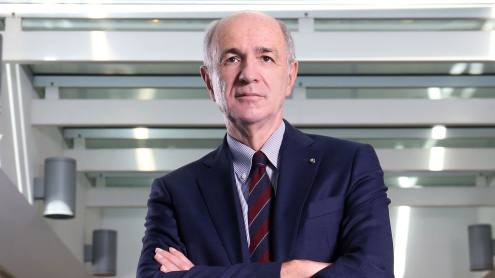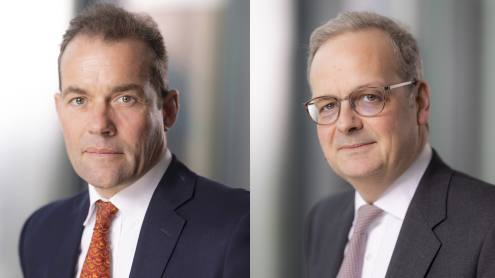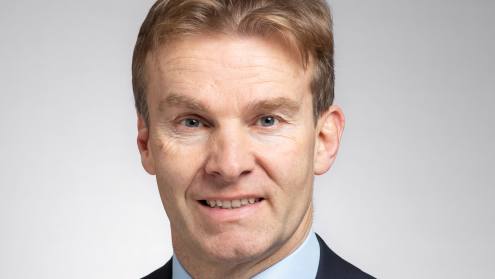Africa’s banks suffered little from the 2008 financial crisis. Most came throughunscathed thanks to high capital ratios, limited exposure to assets outside their country and strategies that largely avoided speculative lending.
Nigerian banks were the exception. Between 2005 and mid-2009, a period in which regulation was lax, they aggressively built up their assets – including large volumes of loans secured against shares – and increased their exposure to the oil and gas sector. They came unstuck when oil prices collapsed, causing Nigeria’s stock exchange to plummet and bad loans to soar.
Editor's choice
Taking control
Sanusi Lamido Sanusi’s appointment as Nigeria's central bank governor in June 2009 marked the start of the clean up. A risk officer by profession and former head of First Bank, Nigeria’s largest bank, he quickly ordered an audit of all the banks.
Of Nigeria’s 24 lenders, 10 failed (excluding First Bank), forcing the central bank to inject N600bn ($3.9bn) of Tier 2 capital and replace the managers of the failed banks. Non-performing loans (NPLs) at the distressed institutions were as high as N1700bn, or 44% of their combined portfolios.
Soon afterwards, Mr Sanusi enforced new rules to restrict margin lending and improve governance at the banks. He also set up several intervention funds to ensure key sectors of the economy could continue to access credit.
Hoovering NPLs
Perhaps the central bank’s most important move, however, was its creation of the Asset Management Corporation of Nigeria (Amcon), a state-owned bank. It was tasked with taking NPLs off commercial lenders’ balance sheets and helping to recapitalise the distressed lenders.
It moved swiftly to rid the sector of bad assets. Having received presidential approval in July 2010, it bought its first batch of stressed loans at the end of 2010 and another in March this year. The purchases proved highly popular, with 22 banks participating (Citi and Standard Chartered’s Nigerian subsidiaries were the only two in the country that did not).
Amcon acquired almost 9000 loans, which had a face value of N3500bn, for N1200bn. Of those, roughly 40% by value came from the institutions that had actually passed the audit, showing that NPLs were affecting even the strongest banks. “Amcon has been a blessing to the industry,” says Bisi Onasanya, head of First Bank. “The majority of the remaining banks are more stable than pre-2010, when delinquent assets were a major problem.”
Amcon’s actions have resulted in NPL ratios in the sector being slashed. They are expected to be less than 5% by the end of this year, having been above 15% in late 2009.
“We have taken the bulk of the non-performing loans,” says Mustafa Chike-Obi, chief executive of Amcon. Mr Chike-Obi returned to Nigeria from the US – where he headed a hedge fund and private equity consultancy – to run the organisation. “Some still remain, but they are largely unsecured loans that banks do not want to sell [at the 5% of principal price that Amcon was offering].”
Taking the burden
Amcon has been lauded by analysts for resolving Nigeria’s NPL problem so quickly. They were also impressed with the strategy it devised to go about this
It funded the purchases by issuing bonds directly to the selling banks, rather than injecting equity into them or using cash. “If we had gone to the market, raised cash and given it the banks, that would have potentially created inflationary pressures,” says Mr Chike-Obi.
When we come across businesses that make no sense or the owners have been guilty of at least diverting the money to something else, then we will use our powers to make sure the government gets its money
The three-year zero-coupon securities (Amcon issued a total of N1700bn at a discount, which made their cash value N1200bn) were guaranteed by the federal government and could therefore be used in repo transactions with the central bank. This meant that although they are tradable, they had been designed to serve as high-quality holding instruments while banks slowly sought to renew their loan expansion. “As they find good loans to make – which is the ultimate objective [of the NPL purchases] – they can gradually liquidate these bonds,” says Mr Chike-Obi.
This has largely transpired. Nigerian banks are once again lending to businesses, with some forecast to grow their loan books by 20% this year.
Nationalisation drive
The 10 failed lenders were given two years to find private sector investors to recapitalise them. Two quickly completed rights issues, while another three – Afribank, Bank PHB and Spring Bank – were nationalised by Amcon in August after having their licences revoked by the central bank, which felt there was little chance of them meeting the recapitalisation deadline at the end of September this year.
The boards of the other five – Equitorial Trust Bank, FinBank, Intercontinental, Oceanic and Union Bank – had agreed to takeovers by rival lenders or investors by the time The Banker went to press. Shareholders were expected to approve the deals in general meetings in late September. Amcon will retain stakes in the five banks – which have all benefited from the central bank’s initial injections – even if they meet the deadline. It will seek to sell those in the medium term.
A more pressing issue will be the nationalised lenders. Amcon insists it will not interfere much in their running. “The only thing that is nationalised about them is that we have put the capital in,” says Mr Chike-Obi. “They will be left to operate as normal entities. Amcon will be a responsible owner, but not a hands-on owner.”
When we come across businesses that make no sense or the owners have been guilty of at least diverting the money to something else, then we will use our powers to make sure the government gets its money
Amcon is yet to decide how it will sell them. Mr Chike-Obi says the first step is to hire advisors to assess all options – including selling each of them gradually instead of in one go, or even merging the three – and propose which one to take.
The process is likely to be long, given Amcon’s 10-year mandate. “We will sell as soon as is practical,” says Mr Chike-Obi. “We are trying to maximise the price we get for them, but at the same time minimise any disruption to the workforce. We do not want people to buy them and then start [to lay off workers].
“We are not going to get the best price. But we are going to get the best price that creates the least disruption.”
Long-term approach
Amcon has a similar timeframe for dealing with its bad loans, and is expected to refinance most of the zero-coupon bonds when they mature with new seven year instruments. Its purchases were diverse. Mr Chike-Obi, who used to be a senior mortgage-backed securities trader for Goldman Sachs in the US, says that about 40% of the loans are backed by real estate and 30% by shares. The rest were mostly made up of loans to oil and gas companies and manufacturers.
It will take about a year for Amcon to sift through all the assets and decide whether to restructure or foreclose them. “We have already made some recoveries from the easy ones,” says Mr Chike-Obi. “But we have not got into the hardcore ones. We will know more after three years [about whether these can be recovered].
“We are looking at ways to support the supportable borrowers. But when we come across businesses that make no sense or the owners have been guilty of at least diverting the money to something else, then we will use our powers to make sure the government gets its money.”
No easy task
The margin loans could be particularly troublesome. Amcon bought them at a 60% premium to what the backing shares were trading at late last year, since when Nigeria’s stock exchange has fallen. Some analysts felt that was too generous. But Mr Chike-Obi says a premium was necessary. “At the time, we felt that prices were depressed,” he says.
Real estate loans were bought at the banks’ own valuations, but with the provision that Amcon was able to get independent agents to reassess the collateral within 12 months and recoup any losses in value.
Managing Amcon’s huge portfolio of NPLs and bank stakes will be no easy task. Mr Chike-Obi will not know how much value he can recover for years yet. But Amcon has made a promising start. At the least, it can say that it has played a major part in ensuring that Nigeria’s banking system has been revitalised after having been on its knees just two years ago.












